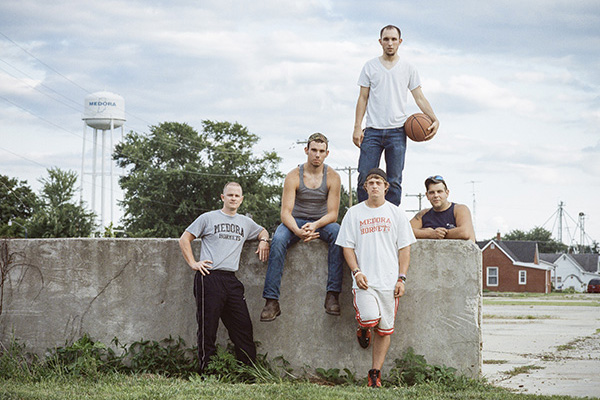
Anyone who has played organized sports knows the feeling of failure conveyed in the opening scene of “Medora,” a documentary that explores the importance of staying strong against all odds. The sadness in the eyes of the players is an emotion that permeates the entire film — but just as the film can be truly depressing, it also remains surprisingly hopeful. For director Andrew Cohn, community is what guides people through tough times and the role of basketball in “Medora” emphasizes that.
The documentary takes its name from Medora, the small rural Indiana town where the film takes place. But Medora is no typical American small town — it is also a place where its small population of just 500 is dwindling. Against a desolate town riddled with drug use and economic despair, the Medora Hornets, a high school basketball team that’s been experiencing a losing streak, continue to play. Cohn follows four of the boys on the team, both in school and at home and focuses on how they keep hope.
As a sports film, “Medora” is a typical story of the underdog. What keeps it fresh, however, is an element of realism that could only be found in the documentary format. The film is a testament to how important skillful editing is to the filmmaking process, even one about high school basketball, engaging.
What really makes “Medora” stand out, though, are the personal issues at play. The documentary explores its subjects so well that it even makes viewers feel as if they know Medora as their own hometown.
From the start of the film, both personal and community struggles are represented as woeful and hopeless — there appears to be no way out for the town. Yet, out of nowhere, hope arises. However, “Medora” itself starts to run into problems when it makes a complete tonal reversal about an hour into the film. What was once a film about the horrors of this town becomes an uplifting tale of perseverance. While the people of the town have earned this, the film has not. The climax is cathartic, but the ending rings false.
The struggle of the boys is omnipresent throughout the film. Cohn captures lives that will make most viewers feel like they’ve had it easy. However, these boys quickly devolve into genre archetypes — such as the misunderstood troublemaker and the one who wants to leave town forever.
By the end of “Medora”’s 80-minute runtime, the viewer will truly understand the community that inspired it. It may not be completely successful in relaying its upsetting yet hopeful message — regardless, Cohn’s debut hits fast and hard for the most part.
Bryn Gelbart is a contributing writer. Email him at [email protected].
























































































































































